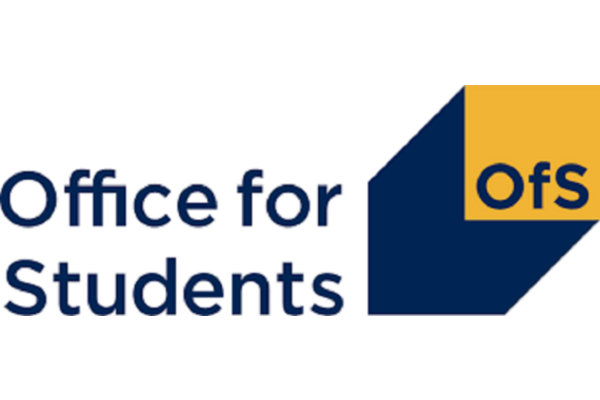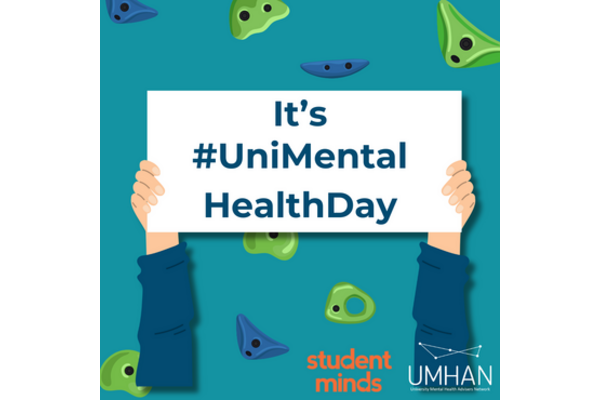The Office for Students has just produced a very useful Briefing Note on Supporting Student Mental Health during the Pandemic . It shows those undertaking the essential work supporting these students have had to adapt to new challenges requiring increased flexibility and awareness of the issues arising from the crisis. It also highlights some of the initiatives being undertaken by particular HEIs, often involving UMHAN members.
Recent meetings with members show their "front-line" experiences match the points raised. Mental Health Advisers are key to ensuring referrals to appropriate services and managing risk and safety issues, including daily duty rotas to deal with issues as they arise. Specialist MH Mentors are often the professionals in the most frequent contact with some of the most vulnerable students; they can be a vital part of highlighting any concerns. They are all working hard to keep in contact with students known to them already while often accepting emergency referrals. A principal aspect of the work of the Mental Health Adviser, and sometimes even the Specialist Mental Health Mentor, is to foster strong links with NHS services and third sector organisations. In the current situation this is absolutely essential. Burn out is already a huge issue in these roles, and staff support, supervision and proper pay/recognition for their work is needed more than ever.
The Briefing illustrates how the coronavirus pandemic has dramatically changed students’ day-to-day lives. For example, teaching has moved online which some students might struggle and feel isolated or have internet difficulties while students who have not gone home might worry about sharing communal areas. Students in their final year will probably be facing the stress of the most challenging graduate jobs market for a generation while post-graduates might have to pause or change their research. Some final year healthcare students might take up working in the NHS. Working in clinical settings during a pandemic may have a negative impact on their mental health with concerns about how they will be supervised, personal protective equipment, fear of catching coronavirus, trauma from dealing with death, stress, and even post-traumatic stress. Some students may lose a family member or friend during this period or become a victim of coronavirus themselves. Universities and colleges are needing to be ready to respond to bereavement and student death.
For students with a mental disability coping at this time will be a particular challenge. For example, those who receive additional support on campus may not be able to run specific software programmes if they are no longer on campus, and some may have additional needs which cannot easily be supported through digital delivery. Changes from in-person to online curricula presents a risk to students generally becoming disengaged from courses, which is likely to affect some students with mental health difficulties more than others. Adjustments for online course delivery are likely to be unknown by students and it is important that institutions acknowledge that changing the delivery methods requires consideration of adjustments in the design of such online provision. Students may require their needs re-assessing, potentially in novel ways due to social distancing measures.
Some students may not have a safe home environment to return to, or an available social network to offer emotional or practical help, which may be contributory factors in the presence of mental health difficulties in the first place. Some might have to self-isolate and find it a struggle to meet their medical or everyday needs. International students who have returned to their home countries may find it difficult to access mental health and wellbeing services that are being promoted through social media platforms. It is essential to ensure continuity of care for those with mental health conditions but it is possible that some students may have had their NHS support changed or reduced because of resource pressures. Some may be experiencing longer waiting times for referrals and treatment.
The Briefing starts from the perspective of their regulatory guidance published at the beginning of April that ‘all students are likely to require increased pastoral support and resources to support their wellbeing’ during this period and made clear our expectation that universities and colleges should take ‘reasonable steps to put in place equivalent alternative arrangements for such support for all students’. It also highlights the responsibility of HEIs under the 2010 Equality Acts which classifies a mental health condition as a disability and that universities have to make reasonable adjustments for support.
This briefing goes on to highlight some of the ideas and the practical steps universities and colleges are taking to support their students’ mental health and wellbeing in challenging circumstances. In particular, it mentions the Royal College of Art, Sussex ‘s Wellbeing What’s On, Cardiff University’s Student Check-in Service and initiatives at Regents College and Keele and Staffordshire Universities. It stresses the importance of student wellbeing of clear, accessible and timely communications – about new arrangements for learning and teaching, changes to assessment, adjustments to accommodation costs (for students living in university or college accommodation), and financial aid.
Changes to the delivery of academic and pastoral support mean that universities and colleges can no longer rely on their established systems and processes and have to be innovative. This is particularly the case in seeking to identify students presenting mental health difficulties of whom they were not previously aware. Such students may be more difficult to identify due to lack of face-to-face contact because of new learning and teaching and residential arrangements. In these circumstances, making all students aware of support available to them and providing information about local or national support services or helplines becomes even more important.
The Briefing states that given the disruption to normal study patterns, and potential longer-term changes to higher education as a result of the coronavirus pandemic, it is possible that universities and colleges will see new patterns in their students’ mental health and wellbeing emerge. However, It is essential that universities and colleges continue to ensure the quality of their service through evidence-informed practice and clinical validation wherever they can, and to evaluate responses to understand impact. UMHAN has a wealth of experience and insight and its members continue to support vulnerable students, provide full access to education, and enable students to flourish through adversity. UMHAN will be assisting in launching a White Paper based on 10 years of student responses to their mental health mentoring which will help to inform good practice in this area.
Anna Matthews, Chair of trustees, UMHAN
Dan Doran, Trustee









